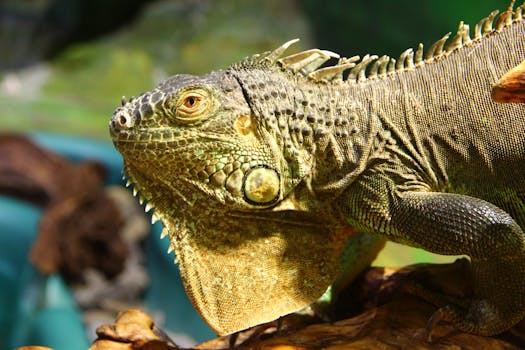Understanding the Time Needs of Your Pet: A Comprehensive Guide
As a pet owner, one of the most important responsibilities you have is understanding and meeting the time needs of your animal companion. Every pet, regardless of species or breed, requires a certain level of daily care and attention to ensure their well-being. This goes beyond just feeding and watering—it includes exercise, social interaction, mental stimulation, and grooming. Understanding these needs is crucial not just for your pet's physical health but also for their emotional and psychological well-being. When pets don’t get enough time and attention, it can lead to various behavioral and health problems that could otherwise be easily prevented.
In this guide, we’ll break down the daily time requirements for a variety of common pets, helping you make an informed decision about which type of pet best fits your lifestyle. We’ll also share tips on how to balance pet care with a busy schedule, ensuring that your furry, feathered, or scaly friend gets the attention they deserve.
Daily Time Requirements for Common Pets
Here’s a breakdown of the daily time commitment required for some of the most popular pets:

1. Dogs
Dogs are among the most time-intensive pets, requiring significant daily interaction.
- Feeding: 15-30 minutes, depending on the dog’s diet and health needs. Some dogs may require special diets or multiple meals per day.
- Exercise: 1-2 hours, including walks, playtime, and training sessions. Larger breeds and working dogs may need even more.
- Social Interaction: 2-4 hours. Dogs are social animals and need companionship, whether it’s playing, training, or just being in the same room as their owner.
- Grooming: 10-30 minutes. Depending on the breed, grooming needs can range from daily brushing to occasional baths.

2. Cats
Cats are generally more independent than dogs but still require daily care and attention.
- Feeding: 10-20 minutes. Cats typically need one or two meals per day, plus fresh water and sometimes treats.
- Exercise: 30 minutes to 1 hour. While cats are often seen as lazy, they do need regular playtime to keep fit and mentally stimulated.
- Social Interaction: 1-2 hours. Cats enjoy attention, petting, and sometimes just sitting near you. Some breeds are more social than others.
- Grooming: 10-15 minutes. Regular brushing helps prevent hairballs and keeps their coat healthy, especially for long-haired breeds.

3. Small Mammals (e.g., rabbits, guinea pigs, hamsters)
Small mammals require a surprising amount of daily attention, despite their size.
- Feeding: 10-15 minutes. These pets need a diet of fresh vegetables, hay, and pellets.
- Exercise: 1-2 hours. Small mammals need time outside their cage for exercise, whether in a playpen or a safe, supervised area of your home.
- Social Interaction: 1-2 hours. Many small mammals are social creatures that enjoy human interaction or the company of other animals.
- Grooming: 5-10 minutes. Some, like rabbits, need regular brushing to prevent matting.

4. Birds
Birds, depending on the species, can be highly social and require plenty of interaction.
- Feeding: 15-20 minutes. Birds need a balanced diet of seeds, fruits, vegetables, and sometimes pellets.
- Exercise: 1-3 hours. Birds need out-of-cage time for flying and exploring. Large birds like parrots need more exercise and mental stimulation.
- Social Interaction: 2-4 hours. Birds, particularly parrots, are extremely social and need a lot of interaction with their human companions.
- Grooming: 5-10 minutes. Regular beak, nail, and feather maintenance are essential.

5. Reptiles (e.g., turtles, lizards, snakes)
Reptiles generally require less social interaction but need specific environmental care.
- Feeding: 10-20 minutes. Reptiles have varied diets, from live insects to specially formulated pellets and vegetables.
- Exercise: 30 minutes to 1 hour. While reptiles don’t need exercise in the same way mammals do, they do require space to move and explore within their habitat.
- Social Interaction: 0-30 minutes. Most reptiles are solitary and don’t require much interaction, though some may enjoy occasional handling.
- Grooming: 5-10 minutes. Regular cleaning of their habitat is essential, along with occasional handling for some species.

6. Fish
Fish are relatively low-maintenance, but their tanks require regular upkeep.
- Feeding: 5-10 minutes. Most fish need to be fed once or twice daily, though the specifics depend on the species.
- Exercise: N/A. Fish don’t need exercise, but they do need a well-maintained tank that allows them to swim freely.
- Social Interaction: N/A. Fish don’t need social interaction in the same way other pets do.
- Grooming: 20-30 minutes. This involves regular cleaning of the tank, water changes, and monitoring the tank’s environment.
Balancing Pet Care with a Busy Schedule
Caring for a pet is a significant commitment, but with some planning and creativity, it’s possible to balance their needs with a busy lifestyle. Here are some tips to help you manage your time effectively:
-
Establish a Routine: Pets thrive on consistency, so try to establish a daily routine that includes feeding, exercise, and playtime. This helps you manage your time and ensures your pet knows what to expect.
-
Prioritize Quality Time: If your schedule doesn’t allow for long periods of interaction, focus on making the time you do have high-quality. For example, a brisk walk with your dog or a focused play session with your cat can be more beneficial than hours of passive time together.
-
Use Technology: There are various gadgets and apps designed to help you care for your pet when you're not home. Automatic feeders, pet cameras, and interactive toys can provide stimulation and care throughout the day.
-
Consider Pet Daycare or Sitters: If you’re frequently out of the house for long periods, consider hiring a pet sitter or enrolling your pet in daycare. This ensures they get the attention and exercise they need when you’re not available.
-
Involve the Whole Family: If you live with others, delegate pet care responsibilities. This not only lightens the load but also ensures that your pet gets more consistent attention.
-
Plan for Busy Days: On days when you know you’ll be particularly busy, try to schedule pet care in advance. This might mean waking up a bit earlier for a walk or setting up an enriching environment that can keep your pet entertained while you’re occupied.
-
Hire Help When Needed: Don’t be afraid to seek help from professionals if you’re unable to meet your pet’s needs. A pet sitter, dog walker, or even a friend or neighbor can provide necessary care.
Conclusion
Understanding the time and attention your pet requires is crucial to ensuring their happiness and health. While every pet has different needs, the commitment is always significant and should be carefully considered before bringing an animal into your home. With proper planning and the right resources, even the busiest pet owners can provide a loving and enriching environment for their companions. Remember, a well-cared-for pet is a happy pet, and their joy will bring immense satisfaction and fulfillment to your life.